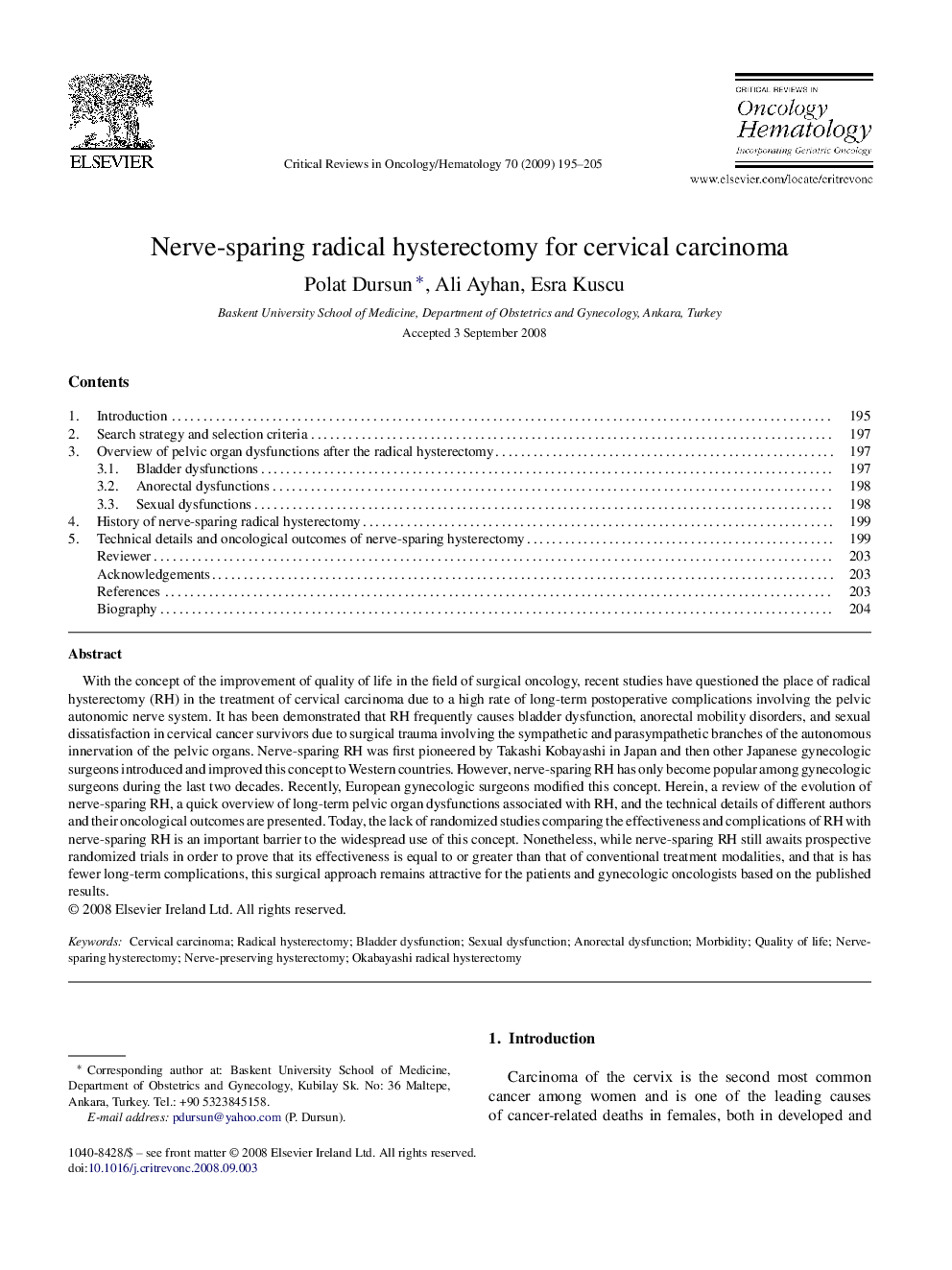| Article ID | Journal | Published Year | Pages | File Type |
|---|---|---|---|---|
| 3329673 | Critical Reviews in Oncology/Hematology | 2009 | 11 Pages |
With the concept of the improvement of quality of life in the field of surgical oncology, recent studies have questioned the place of radical hysterectomy (RH) in the treatment of cervical carcinoma due to a high rate of long-term postoperative complications involving the pelvic autonomic nerve system. It has been demonstrated that RH frequently causes bladder dysfunction, anorectal mobility disorders, and sexual dissatisfaction in cervical cancer survivors due to surgical trauma involving the sympathetic and parasympathetic branches of the autonomous innervation of the pelvic organs. Nerve-sparing RH was first pioneered by Takashi Kobayashi in Japan and then other Japanese gynecologic surgeons introduced and improved this concept to Western countries. However, nerve-sparing RH has only become popular among gynecologic surgeons during the last two decades. Recently, European gynecologic surgeons modified this concept. Herein, a review of the evolution of nerve-sparing RH, a quick overview of long-term pelvic organ dysfunctions associated with RH, and the technical details of different authors and their oncological outcomes are presented. Today, the lack of randomized studies comparing the effectiveness and complications of RH with nerve-sparing RH is an important barrier to the widespread use of this concept. Nonetheless, while nerve-sparing RH still awaits prospective randomized trials in order to prove that its effectiveness is equal to or greater than that of conventional treatment modalities, and that is has fewer long-term complications, this surgical approach remains attractive for the patients and gynecologic oncologists based on the published results.
